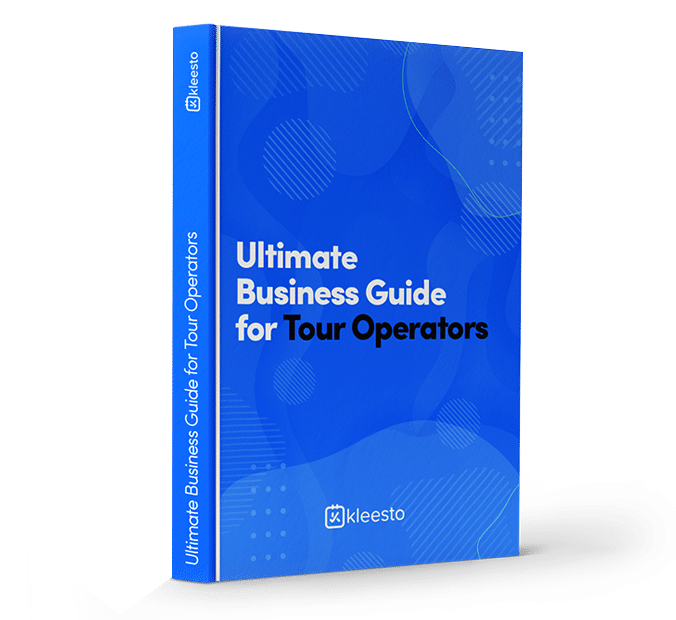In an era where digital presence dictates success, mastering the art of SEO (Search Engine Optimization) for your travel website is not just an option—it’s a necessity. With the right SEO strategies, you can significantly increase your site’s visibility, attract more traffic, and boost your booking rates.
This guide is your compass to navigating the complexities of travel SEO, offering best practices, innovative techniques, and actionable tips to optimize your travel website and ascend in search engine rankings. Whether you’re a seasoned travel professional or just starting, this article will equip you with the knowledge to transform your SEO journey and drive your travel business to new heights.
Why Is SEO Crucial for Your Travel Website?
SEO is the lifeline of digital marketing in the travel sector. With millions of searches conducted daily by potential customers dreaming of their next destination, appearing at the top of search results is pivotal.
SEO for travel websites is not just about visibility; it’s about connecting with travelers at the moment of inspiration and decision-making. It’s a strategic approach to placing your travel offerings in front of the right audience, at the right time, thereby increasing traffic and, ultimately, bookings.
Starting Your SEO Journey: Understanding Keywords
Keywords are the compass of your SEO strategy. They guide potential customers to your website through their search queries. Identifying the right keywords—especially long-tail keywords specific to the travel industry—can position your website to attract more qualified traffic. Understanding the intent behind search queries, whether informational, navigational, or transactional, helps you tailor your content to meet the needs of travelers and guide them through their booking journey.
Optimizing Your Content for Maximum Impact
Content is king in the realm of SEO, and this holds especially true for travel websites. High-quality, engaging content that provides value to your audience can set you apart in a crowded market. From detailed travel guides and tips to captivating destination descriptions, your content should be optimized for search engines and designed to enthrall potential travelers. Remember, content marketing is not just about text; incorporating stunning visuals and videos can significantly enhance user experience and engagement.
The Importance of Local SEO in the Travel Industry

Local travel website SEO is a powerful tool for travel websites, particularly for those focusing on specific destinations or local attractions. Optimizing for local search involves claiming and updating your Google Business Profile, using location-based keywords, and creating content that highlights local sights and experiences. Local SEO ensures that when potential travelers search for experiences in your locale, your website stands out as a go-to resource.
Leveraging Google Business Profile for Enhanced Visibility
Your Google Business Profile is a crucial element of your online presence. For travel websites, especially those with a physical location like hotels or tour offices, a well-optimized profile can improve visibility in local search results and Google Maps. This includes accurate contact information, appealing photos, and positive reviews. Encourage satisfied customers to leave feedback and respond to reviews to build trust and credibility.
Mastering On-Page SEO: Tips and Tricks for Travel Sites
On-page travel website optimization involves optimizing individual web pages to rank higher and earn more relevant traffic. This encompasses using target keywords in your titles, headings, and throughout your content, optimizing meta descriptions to increase click-through rates, and ensuring that your structure enhances user experience. Additionally, optimizing your images with alt tags and ensuring fast loading times are key factors in on-page SEO success.
The Role of Off-Page SEO in Building Your Travel Website’s Authority
Off-page travel website optimization, particularly backlinks from reputable sites, signals to search engines that your website is a valuable resource. Engaging in guest blogging, forming partnerships with influencers in the travel industry, and being featured in travel directories can all contribute to your site’s authority and ranking. Remember, quality over quantity is paramount when it comes to building backlinks.
Technical SEO: Ensuring Your Website’s Foundation Is Solid
Technical travel website optimization is all about the backend elements that impact your site’s visibility. This includes a secure and accessible website, fast loading times, mobile-friendliness, and structured data to help search engines understand your content better. Regular SEO audits can help identify and rectify issues that may be hindering your site’s performance.
Mobile SEO: Capturing the On-the-Go Traveler
With the majority of travel searches happening on mobile devices, optimizing your travel website for mobile SEO is non-negotiable. A mobile-friendly website offers a seamless user experience, which is crucial for keeping potential customers engaged and reducing bounce rates. Ensure your website is responsive, loads quickly on mobile devices, and has easy-to-use navigation. Additionally, consider the importance of voice search optimization as more travelers use voice-activated devices to plan their trips.
Using Analytics to Guide Your Travel Website Optimization Efforts and Boost Conversion Rates
Analytics play a critical role in shaping your SEO strategy. Tools like Google Analytics offer insights into your website’s performance, from which pages attract the most visitors to where you’re losing potential bookings, highlighting the importance of targeting the right keywords for increasing traffic to your website. Analyzing this data allows you to refine your SEO tactics, improve user experience, and ultimately, increase your conversion rate. Set up goals, monitor your progress, and adjust your strategy based on data-driven insights to maximize your SEO investment.

Embarking on your travel SEO journey can seem daunting, but with these strategies and best practices, you’re well-equipped to increase your travel website’s traffic, improve your search engine rankings, and ultimately, boost your bookings. Remember, SEO is a marathon, not a sprint. Consistent effort, along with a willingness to adapt to changing trends in the travel industry and search engine algorithms, will ensure your travel website reaches its full potential.
You don’t have to be alone on this one!
Let our team guide your through the process by booking a discovery meeting for the kleesto website development services with our team of kleesto Pandas!
PS: If you like this guide make sure to share it online and don’t miss our 8 Proven Tips for an Exceptional Travel and Tours Website!







